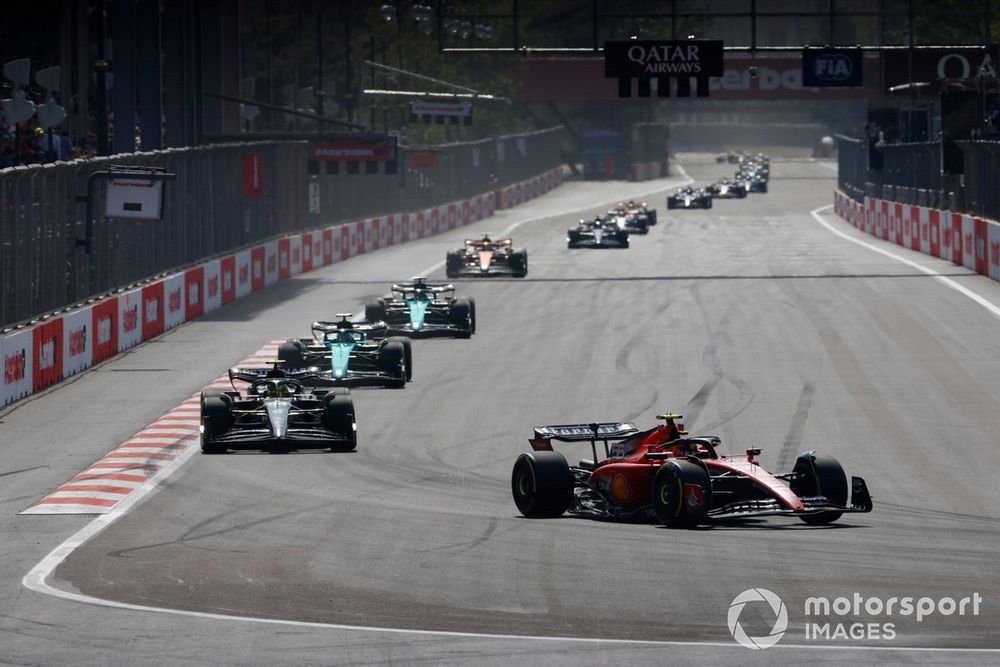
The call came after the DRS zone on the main straight at last weekend's Azerbaijan GP was cut by 100 metres, to the frustration of some drivers.
However, Alonso pointed out that the FIA knows from data gathered at last year's races that both tracks were among the easiest for overtaking under DRS, and he agrees with the move to trim the zones.
And while the Baku change generated some controversy, Alonso insisted that certain cars were hurt more than others, which is why their drivers voiced their frustration.
"I think so, yes," said the Aston Martin driver when asked if he backed the FIA decision to trim the Miami zones.
"It was the easiest here last year, apparently, so that's why I think FIA did shorten the DRS. In Baku it was one of the easiest last year, so they shortened the DRS.
"I heard Lewis [Hamilton] was saying that the DRS was too short, which I think for them with the high downforce it was too short. For Red Bull, it was too long.
"At the start/finish line, [Max Verstappen] overtook [Charles] Leclerc and he was opening to brake on the outside for Turn 1. So if you are one car, it was too long. If you take another car, it was too short.
"So I guess it was about the calculation that the FIA do after seeing last year's races. Baku and Miami, they were on the high side in terms of overtaking, and how easy it was.
"So that's why they shortened it. Let's see this year, but it's difficult to predict."

Alonso acknowledged that as team's have developed their cars to the aero rules introduced in 2022 it has become harder to follow cars ahead.
"It's true that this year it seems a little bit more difficult to follow cars. That's 100% correct. Red Bull thinks that the DRS zones are too long. So it depends which car you take."
Asked if ground effect was the right way to go, Alonso said that it's too early in the life of the current rules to make a call.
"It's a good question," he said. "I think there were higher expectations on following cars, and maybe having the grid a little bit be closer together. I don't know, I think we need to give a little bit more time.
"If we didn't have the Red Bull that much ahead I think it would be a very interesting fight, with three or four teams within one or two tenths, and maybe we were saying that the rules, they were a success.
"So maybe this is the story in few years' time or whatever, when we have some stability in the rules. Then maybe 2026 everything changes again!"
Alonso suggested that behind the two Red Bulls the field is so tightly-packed that overtaking isn't easy.
"I think because we are very close in terms of performance," he said when asked about the issue. "If you remove the Red Bull sometimes within six-tenths you are from P3 to P16 in Q1 to go out of the next session. So then eventually, you finish qualifying in the order that you deserve.
"And then in the race, how you will overtake a car that in front of you who is just half a tenth quicker than you? So it's more or less your natural order. So I think that's the main reason.
"And then it could be the tyres as well. They still get overheated quite heavily if you follow cars.
"So you need to decide wisely when you want to be too close to a car in front of you. So that's the problem."







